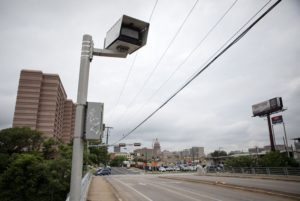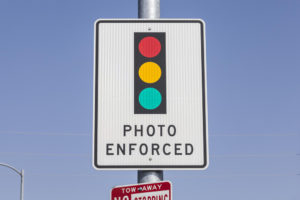Texas has taken a step back to where it was until the Legislature decided to allow cities to use technology to assist police in deterring those who break the law.
Count me as one Texan who’s disappointed in this decision.
Gov. Greg Abbott has signed legislation that now prohibits cities from deploying red-light cameras to catch those who disobey signals’ directions to stop. Abbott listened to the complainers who said the cameras are — and this just kills me — unconstitutional, that they disallow motorists busted by the devices to “confront their accuser.”
The owners of the vehicles that are busted can appeal the fines levied by municipal courts, which gives them the chance to confront the government.
Princeton, where I live, does not use the devices. Neither do neighboring cities Allen and McKinney. Denton, which is about 30 miles west on U.S. 380, uses the devices.
The Legislature did allow for cities to keep the cameras operating for the length of their existing contract with the vendors that supply them. After that, they come down!
Cities and towns long have been thought to be the best judge of their own needs. Many cities in Texas have deemed that they need help from these devices to help police in enforcing traffic laws. Why not let the cities make that call? Why not cede “local control” to the cities?
The Legislature doesn’t see it that way. Neither does Gov. Abbott.
I believe they have made a mistake.

